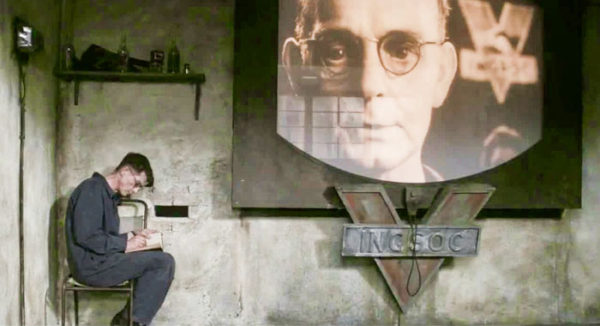

“The propensity for facial recognition technology to endanger civil rights and civil liberties substantially outweighs its purported benefits, and the technology will exacerbate racial injustice and threaten our ability to live free of continuous government monitoring,” the Stop Secret Surveillance Ordinance reads. The San Francisco Board of Supervisors voted 8 to 1 to pass the legislation.
ALSO ON RT.COMGoogle wins lawsuit, can continue to use facial recognition tech on users without consentThe new law makes it illegal for city authorities to “obtain, retain, access or use” facial recognition tech and forces local government to solicit public input before adopting or purchasing other intrusive technologies like predictive policing, license plate readers, and biometric surveillance and to disclose their intended use. While its reach is strictly local, meaning state and federal authorities can still use the tools, it is the first legislation of its kind to explicitly ban the tech. Oakland, California and Somerville, Massachusetts are weighing similar measures.
The California State Assembly appears to be on the same page, having banned biometric surveillance in body cameras last week. Critics of both city and state measures have expressed concern that police will merely turn to private sector surveillance for their data, but the citywide ban takes those concerns into account by barring agencies from actively soliciting tips that they know derive from facial recognition systems, and requiring them to ask their sources whether information originated with such systems. The American Civil Liberties Union of Massachusetts, which is working with Somerville on that city’s ban, is looking to insert a prohibition against public-private data sharing.
Federal authorities, meanwhile, are embracing facial recognition, even within San Francisco, where the airport is an early adopter. The Department of Homeland Security hopes to have the 20 largest US airports blanketed with biometric surveillance by 2021, even though the technology only works about 85 percent of the time, according to the Customs and Border Patrol Inspector General.
ALSO ON RT.COMDenying govt agencies facial recognition tech would be ‘cruel’, claims Microsoft presidentFacial recognition has increasingly come under fire as critics charge it turbocharges existing biases within law enforcement. Multiple studies have shown the tech is inept at distinguishing between nonwhite faces, and earlier this year, over 85 human rights groups wrote to Microsoft, Amazon and Google, the top developers of facial recognition technology, imploring them to quit selling the software to government agencies, citing the threat to vulnerable populations like activists and immigrants.
more recommended stories
 Fentanyl Seizures at Border Continue to Spike, Making San Diego a National Epicenter for Fentanyl Trafficking
Fentanyl Seizures at Border Continue to Spike, Making San Diego a National Epicenter for Fentanyl TraffickingFentanyl Seizures at Border Continue to.
 Utah Man Sentenced for Hate Crime Attack of Three Men
Utah Man Sentenced for Hate Crime Attack of Three MenTuesday, August 8, 2023 A.
 Green Energy Company Biden Hosted At White House Files For Bankruptcy
Green Energy Company Biden Hosted At White House Files For BankruptcyAug 7 (Reuters) – Electric-vehicle parts.
 Former ABC News Reporter Who “Debunked” Pizzagate Pleads Guilty of Possessing Child pδrn
Former ABC News Reporter Who “Debunked” Pizzagate Pleads Guilty of Possessing Child pδrnFriday, July 21, 2023 A former.
 Six Harvard Medical School and an Arkansas mortuary Charged With Trafficking In Stolen Human Remains
Six Harvard Medical School and an Arkansas mortuary Charged With Trafficking In Stolen Human RemainsSCRANTON – The United States.
 Over 300 People Facing Federal Charges For Crimes Committed During Nationwide Demonstrations
Over 300 People Facing Federal Charges For Crimes Committed During Nationwide DemonstrationsThe Department of Justice announced that.
